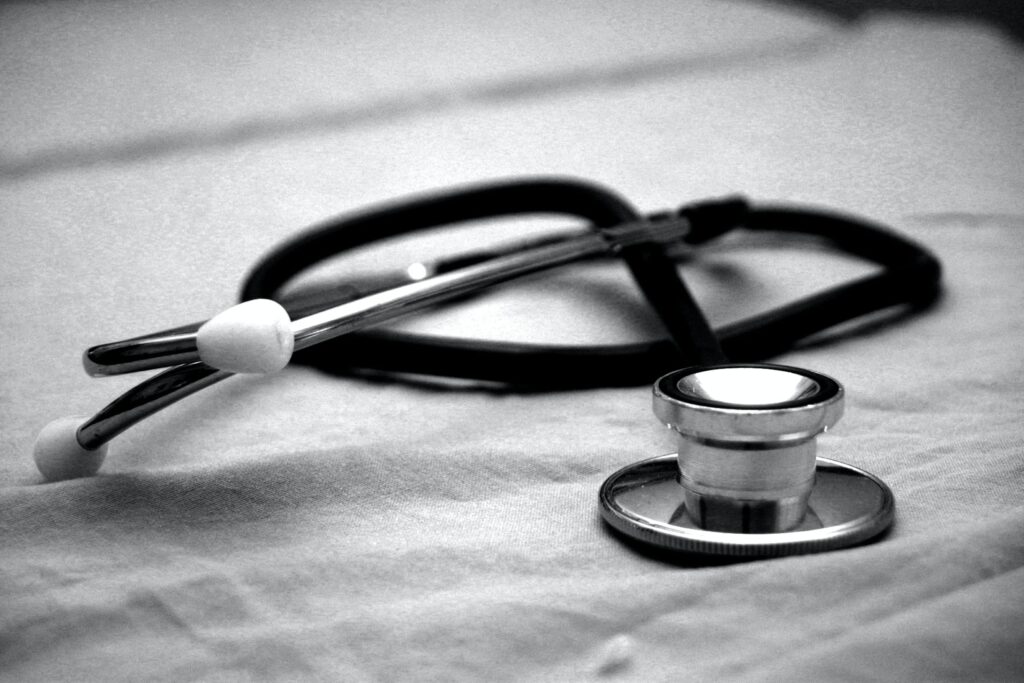Alcohol detox involves purging your body of alcohol, and this process can involve disturbing withdrawal symptoms, depending on the level of dependence involved. This is why medical detox is always recommended.
Alcohol withdrawal is believed to arise due to changes in brain activity triggered by prolonged and abusive alcohol consumption. Sustained alcohol abuse disrupts the balance of inhibitory and excitatory neurotransmitter activity in the brain. Withdrawal symptoms are a result of this imbalance being corrected.
Experiencing withdrawal symptoms is one of the symptoms of alcohol use disorder, as outlined in DSM-5, the fifth and updated edition of the APA’s Diagnostic and Statistical Manual of Mental Disorders.
Before we look at the safest way of detoxing from drugs and alcohol, how does withdrawal unfold?
Alcohol Detox Timeline
According to AAFP (American Academy of Family Physicians), there are three possible stages of alcohol withdrawal. Not everyone will experience all of these stages.
- Mild alcohol withdrawal: Symptoms include anxiety, insomnia, headaches, heart palpitations, and gastrointestinal disturbances.
- Moderate alcohol withdrawal: Expect the symptoms of mild alcohol withdrawal in addition to confusion, rapid and abnormal breathing, increased heart rate and blood pressure, and mild hyperthermia.
- Severe alcohol withdrawal: Severe alcohol withdrawal involves all of the above symptoms, alongside disorientation, impaired attention, hallucinations, and seizures.
In the absence of treatment by a qualified healthcare professional, many people progress from moderate to severe alcohol withdrawal rapidly.
There are many variables that impact the precise timeline for alcohol withdrawal. These include:
- Duration of alcohol abuse
- Alcohol intake
- Co-occurring physical or mental health issues
A typical timeline looks something like this:
6 hours after last drink
You may experience minor withdrawal symptoms as little as six hours after your last drink. If you have a history of sustained and heavy drinking, you could have a seizure at this point of detox, making it essential to withdraw from alcohol under close medical supervision if you have severe alcohol use disorder.
12 hours to 24 hours after last drink
If you are going to experience hallucinations during alcohol withdrawal, they typically manifest during the very early phase of withdrawal. Although disturbing, hallucinations are not considered a medically dangerous symptom of alcohol detox.
24 hours to 48 hours after last drink
The first couple of days of abstinence usually see minor withdrawal symptoms continuing. These include:
- Headaches
- Stomach upset
- Tremors
If you are only experiencing minor alcohol withdrawal, symptoms will normally peak after between 18 and 24 hours, and they should start diminishing after 4 to 5 days.
48 hours to 72 hours after last drink
Some people experience delirium tremens (DTs), a severe form of alcohol withdrawal characterized by elevated heart rate, high body temperature, and seizures.
72 hours after last drink
72 hours after the last drink, the symptoms of alcohol withdrawal are at their most intense.
In some rare cases, symptoms can last for up to one month.

How Long Does it Take to Detox from Alcohol?
As a process, alcohol withdrawal begins within hours of the last drink, and causes acute withdrawal symptoms that can last for up to 5 days.
Occasionally, symptoms linger for longer.
Alcohol Detox Symptoms
Alcohol is a central nervous system (CNS) depressant. This means consuming alcohol induces feelings of euphoria and relaxation. Your body, though, always seeks to maintain balance or homeostasis, meaning your brain is called upon to make more of the neurotransmitter receptors that stimulate or excite the CNS.
If you stop drinking alcohol, your existing receptors and the new receptors will both feel the absence. Resultantly, your CNS becomes overactive. This triggers symptoms such as:
- Rapid heart rate
- Irritability
- Anxiety
- Tremors
- Sweating
The general signs of symptoms of mild and moderate alcohol withdrawal include any or all of the following:
- Increased blood pressure or heart rate
- Headaches
- Rapid abnormal breathing
- Gastrointestinal disturbances
- Heart palpitations
- Mood changes
- Fatigue
- Insomnia
- Tremors
- Anxiety
- Hyperthermia
The symptoms associated with DTs include:
- Paranoia
- Hallucinations
- Illusions
- High body temperature
- Seizures
Can You Alcohol Detox at Home?
Alcohol detox at home might seem like a good idea if you feel there’s no place like home.
Unfortunately, unsupervised home detox can carry significant risks, and can be extremely challenging if you don’t have a firm grasp on the alcohol withdrawal timeline and the accompanying dangers. So if you or a loved one is struggling with alcohol addiction and is attempting to detox at home, the best way you can help an alcoholic is making sure they get treatment in a licensed facility where they can detox safely and comfortably under supervision of experts and clinicians.
Beyond this, if you are also using other substances while drinking – whether prescription medications like opioids or benzos, or illicit drugs – this can heighten the intensity of withdrawal symptoms. Polysubstance abuse can also make the withdrawal symptoms more unpredictable.
With home alcohol detox, the pain and discomfort of withdrawal symptoms is so great that many start drinking again just to make the symptoms disappear. This, sadly, perpetuates a vicious cycle.
Co-occurring mental health disorders will also inflame the issues you encounter during alcohol withdrawal, especially if you have been self-medicating your symptoms with substances.
By engaging with an addiction treatment service, you’ll remove yourself from an environment that triggers you to drink alcohol, and you’ll benefit from all the support and structure you need to build a firm foundation for sustained recovery. All that starts with medical detox, but it’s only the first step in a lifelong journey.
What Happens After Alcohol Detox?
After detoxing from alcohol, you’ll be ready to commit to an outpatient treatment program. If you need more support and time commitment than a regular outpatient program, consider an IOP (intensive outpatient program) or PHP (partial hospitalization program).
Following a course of medication-assisted treatment combined with psychotherapy, you’ll be ready to reintegrate with your life alcohol-free.
From this point, you should be equipped with the sober living skills you need to thrive. Many people find 12-step groups like AA beneficial on an ongoing basis. The best rehabs will also offer robust aftercare.

Finding An Alcohol Detox Center with the Help of Renaissance
While we don’t have a detox program at Renaissance Recovery, we have a selection of outpatient programs to help you conquer your addiction to alcohol and can also help you find a detox program to get you started.
While not everyone requires a medical detox, for those with more severe alcohol use disorder, this is invaluable. Reach out to the friendly team at Renaissance’s California alcohol rehab and we can help you find the best alcohol detox center near you. All you need to do then is prepare for a few challenging days, and then you’ll be primed to engage with our outpatient programming for alcohol use disorder. Call us today at 866.330.9449 to learn more about treatment options and alcohol detox.









